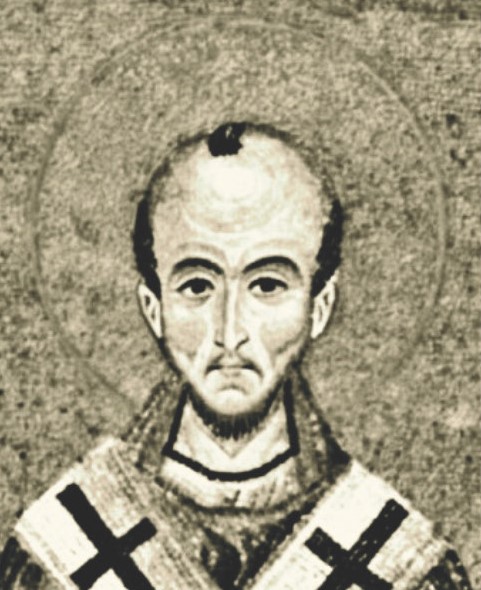- Home
- About us
- Students
- Courses
- Research
- Library
- News & Events
- Gallery
- Contact
- Our Blog
Latest News

2016 St Andrew's Patristic Symposium
→ Back to all Patristic Symposia
St Andrew's 7th Patristic Symposium
'The Personality and Contributions of St John Chrysostom'

On 23-24 September 2016, Professor James Harrison (Director of Research, Sydney College of Divinity), Protopresbyter Dr Doru Costache (Senior Lecturer in Patristic Studies, St Andrew's), Dr Adam G. Cooper (Senior Lecturer, John Paul II Institute for Marriage and Family), and Dr Mario Baghos (Lecturer in Church History, St Andrew’s) convened the Seventh St Andrew's Patristic Symposium. Featuring keynote speakers Professor Pauline Allen and Dr Wendy Mayer, from the Centre for Early Christian Studies at the Australian Catholic University (Brisbane QLD), the Symposium offered insightful presentations on the Church Father from scholars in a broad range of disciplines. These contributed to an intricate portrait of the saint as a great theologian, exegete, shepherd, preacher, and humanist.
Traditionally acknowledged as a great orator, scriptural interpreter and dedicated shepherd, in recent times the significance of Chrysostom is primarily assessed from the viewpoint of social history. Very recently, his input to the notion of free will has opened new avenues for exploration. The Byzantine acclamation of Chrysostom as an ecumenical teacher and the references to him in the 14th century hesychast disputes would require further assessment. A broader, interdisciplinary approach to Chrysostomian studies will cast further light on the various contributions of this venerable figure of early Christianity. This, precisely, is the object of our conference.
We welcome presentations from the different disciplines of Christian theology interested in further reflecting on this central doctrine of the Church, irrespective of their field of expertise, academic affiliations or denominational background. Indeed, it is hoped that this cross-disciplinary approach (whether this be systematic theology, patristics, ethics, biblical studies, church history, liturgics, etc) will contribute by casting further light - indeed a more enriching and holistic perspective - to this most significant Christian teaching.
Keynote Speakers
Keynote Address:
"John Chrysostom after Chalcedon: A Useful Ecumenist?"
Abstract: John Chrysostom appears manifold times in the florilegia after Chalcedon, both in those pro- and antiChalcedonian. Perhaps because he was not properly speaking a systematic theologian and preached well before the Council of 451, he seemed to be acceptable to both sides. However, the picture is more complicated than that because we see him cited extensively by the anti-Chalcedonian patriarch of Antioch, Severus (512-518), in his homilies and letters as well as in the works of post-Chalcedonian Nestorians. Emperor Justinian I, Anastasius of Sinai, and John of Damascus also made grateful use of Chrysostom’s work, leaving the impression that the Golden Mouth was a useful ecumenist and a man for all seasons.
Keynote Address:
"John Chrysostom: Moral Philosopher and Physician of the Soul"
Abstract: In the past two years a substantial body of scholarship has begun to appear that returns to the question of how in his thought and approach John Chrysostom was shaped by the Greek-speaking eastern Roman world into which he was born. This is a view that seeks to read through his own preaching and writing against ‘pagan’ philosophy and sophistic rhetoric and to move beyond twentieth-century concerns with where he sits within an ‘Antiochene’ theological and exegetical school. Emerging from this scholarship is recognition of the strong influence on John of the philosophical-oratorical tradition of psychagogy (guidance of the soul), with how his admiration for the apostle Paul and urban philosophical asceticism is shaped in response to the admiration among the pagan elites of Antioch for the ascetic-philosopheremperor Julian, and how Graeco-Roman moral philosophical traditions, both Platonic-Aristotelian and Cynic-Stoic, as well as medical traditions that conceive of moral error as imbalance and therefore sickness of the soul, are dominant in his thought. In this paper we will draw out how together these ideas are producing a more holistic view of John Chrysostom’s own perception of the role of sin as sickness and the priest as physician. In the process we will pay particular attention to the implications of this way of conceiving his ministry for how he treated different categories of the morally sick, in particular Jews, heretics, and the members of his own neo-Nicene Christian community.
Winners of the postgraduate bursaries offered by Australian Research Theology Foundation Inc. are:
-- Junghun Bae (Australian Catholic University, Brisbane)
-- Andrew Prince (Brisbane School of Theology, Brisbane)
News
- For the first time in the history of our symposia, the 2016 edition offered two postgraduate bursaries of $500 (each), generously funded by Australian Research Theology Foundation Inc.
- A collective volume resulting from the 2012 and 2013 symposia, on the Alexandrian Fathers, was published in September 2015. It contains papers already published in Phronema and an invited contribution from an international scholar. Here are the details of the volume: Doru Costache, Philip Kariatlis and Mario Baghos (eds), Alexandrian Legacy: A Critical Appraisal (Newcastle upon Tyne: Cambridge Scholars Publishing, 2015). ISBN (10) 1-4438-8001-9. ISBN (13) 978-1-4438-8001-5.
- A collective volume containing select peer reviewed papers from the 2009-2011 symposia, dedicated to the Cappadocian Fathers, was published in 2013. Here are the details of the volume: Doru Costache and Philip Kariatlis (eds), Cappadocian Legacy: A Critical Appraisal (Sydney: St Andrew's Orthodox Press, 2013). ISBN 978-0-9775974-9-9.
- Most papers presented for the St Andrew's Patristic Symposia have been published in our Faculty's theological journal, Phronema, beginning with its 2010 monograph issue. After peer review, the resulting papers of the 2014 symposium will be published in any of the two annual issues of our journal, Phronema (vol. 30), in 2015, the second one being entirely dedicated to the symposium.
→ Back to all Patristic Symposia

.jpg)





.png)